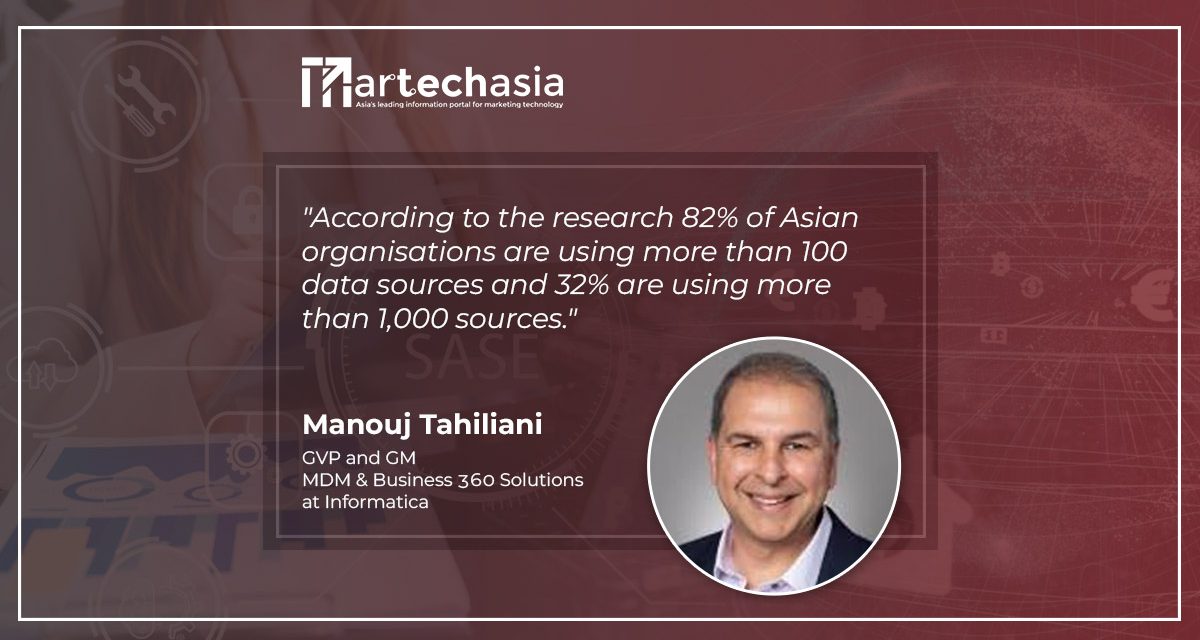What data challenges are preventing APAC retailers from maximising the potential of digital-first retail experiences?
Far from a new phenomenon, online shopping was enjoying a steady upward trajectory even before the pandemic struck two years ago. But of course, there’s absolutely no denying that COVID-19 threw ecommerce into the spotlight like never before, impressively accelerating a decade worth of digital adoption into a mere matter of months.
Asia Pacific’s ecommerce sector, in particular, witnessed astronomical growth. Since the beginning of the outbreak, an estimated 70 million more people began shopping online in just six Southeast Asian countries.. As we grow accustomed to new ways of work and play, it’s increasingly clear that some preferences have changed for good. For example, consulting firm PWC found that mobile e-commerce had reached a historic high by the end of 2021 and expects the habit to persist far beyond the pandemic.
Adapting to a hybrid way of life that straddles the digital and physical world, retailers and brands have sought to create a range of omnichannel experiences to reach and engage with customers. But, while this expansion of integrated channels brings with it exciting potential and opportunities, retailers have inevitably also found themselves facing a new and weightier obstacle – data overload.
Reining in the data sprawl
Retailers know that data is valuable. But simply collecting and storing information about customers serves little purpose at best and can actually cause damage to a brand’s reputation at worst. On the flipside, brands that are able to not only safely collect, but analyse the data they’ve gathered, are able to learn more about their customers to subsequently enhance their experience.
And this is important because customers are becoming more selective about who they share their data with and how much they’re willing to give away. For businesses that secure a spot on this coveted list, access to the data comes with strings; by generously sharing their data with retailers, customers expect a better understanding of their preferences, and consequently, more personalised service. They’re even willing to pay more for it – or take their business elsewhere to find it.
Simply put, the impersonal approach doesn’t cut it. To truly gain a competitive edge, retailers must be able to effectively utilise their wealth of omnichannel data to elevate the customer experience through data-driven decisions.
However, distilling insights from data – typically scattered across multiple channels, departments, applications, and systems – is by no means a straightforward process. Ironically, many organisations may have even become less data-driven in recent years in the face of volatile market conditions that forced them to make fast decisions, whether they were able to find the data to back them or not.
In Informatica’s 2021 global CDO study, complexity and fragmentation was the top challenge cited by CDOs – especially in Asia Pacific. According to the research, 82% of Asian organisations are using more than 100 data sources, and 32% are using more than 1,000 sources – these figures were higher than any other region.
Without the proper data management in place, data can quickly become siloed, outdated, and inaccurate, ultimately intensifying many pain points. Without access to a single source of truth, marketing efforts relying on disparate data or even intuition can result in ineffective pricing and promotion strategies. Retailers may suffer from increased customer churn due to the inability to personalise preferences based on changing consumer patterns. They may even incur higher operating costs because of inefficient processes.
A connected and trusted view of the customer
Intelligent data management – one that is cloud-native and powered by artificial intelligence and machine learning – is key to retailers being able to better understand and serve their customers. Among many other advantages, two big benefits include:
- Intelligent automation to elevate experiences
Creating an intelligent 360-view of the customer by capturing data from different touchpoints, the power of data management in the cloud helps brands optimise campaigns and tailor experiences. For instance, by enabling retailers to apply AI and machine-learning to customer behavior data, they can automatically identify customer attributes and important life events allowing them to optimise offers and deliver highly personalised experience. Coupled with an understanding of demographics, device preferences, service history and more, businesses can become well-equipped with data-backed insights to better serve their customers.
There are already some great examples of retailers putting this to work. Unilever, for example, adopted Informatica’s Intelligent Data Management Cloud (IDMC) for its customer and product data management capabilities. By improving customer profiles with clean, consistent, and complete information, and subsequently providing rich online product content to drive purchase decisions, the solution supports Unilever in creating hyper-personalised customer experiences.
- Strengthening customer trust by securing data
It’s important to remember that while customers do continue to expect personalisation, more are also paying attention to what kind of data about them is being collected and used. This becomes even more pertinent amidst ever-changing data privacy regulations as ecommerce transcends borders and serves customers in different jurisdictions. In this digital-first world we live in, breaches and lapses in privacy can be heavy hits to customer trust and loyalty – or another way to look at it is privacy-aware personalisation is a cornerstone for the future of the customer experience.
Intelligent data management provides organisations with full visibility around the data that is available for use – including an understanding of a dataset’s quality, lineage, whether it contains personally identifiable information (PII), who has access to those details and for what purpose. This is vital for ensuring that retailers remain compliant with data privacy regulations, reduce risks of exposure, and can safely derive insights from their data for decision-making. It ultimately also helps to build loyalty and strengthen relationships with their customers. Take for example, HelloFresh, the world leader in meal-kit business, needed to scale up their data analytics to keep their customers happy, manage costs and stay ahead of competitions. During the pandemic, the demand forecasting became even more critical for the company. With proper data governance solution in place, it empowers HelloFresh employees to get the trusted, high-quality data they need to perform their job, for e.g., to fulfil customer orders, manage logistics and food capacity in the warehouses, etc., and as such creating better insights from the data fit for the business use
The value of connected intelligent data
As retailers constantly pivot in response to changing market needs and consumer demands, the data management platforms they embrace must therefore deliver agility and scalability to support data-driven and customer-centric business operations and decision making.
Creating a unified and unique view of the customer is a fundamental step that will go a long way in helping retailers make informed decisions to ultimately win hearts and minds of the customers. But to achieve this, data management can no longer be about whether you can simply contain and store all your data – instead, it must empower the sharing of high quality, intelligent data which is actionable at scale to create highly personalised, convenient customer experiences across all channels and touchpoints. As such, it should be organised in a way that helps cut through the noise and nurtures trust in the data – enabling unique customer experiences that ultimately help retailers create brand loyalty and generate revenues as they move into a digital-first world.



















